Action potentials - electrical characteristics and generation
By: HWC
Date Uploaded: 11/13/2019
Tags: homeworkclinic.com Homework Clinic HWC Action potentials membrane potential graded potentials hyperpolarization depolarization refractory period
• An action potential is the nervous impulse or signal for long distance communication. Each action potential is generated at the cell's trigger zone. • Action potentials are considered an all-or-nothing phenomena because they are either generated or not. • The generation of an action potential is dependent on the strength of its stimulus -graded potentials. • Generating and conducting an action potential requires both Na+ and K+ voltage gated channels. • An action potential is a sequence of electrical events that briefly reverses the charge of the membrane and then restores the resting membrane potential. • At rest, the voltage gated K+ and Na• channels are closed. • The Na+ channels must be opened for an action potential to be generated. • Na+ channels have both activation and inactivation gates. • The generation of an action potential is dependent on the strength of its stimulus -graded potentials. • if the graded potential is a hyperpolarization then the voltage activated Na+ channel gates will remain closed. • A graded potential that is a weak depolarization, or sub-threshold (below -55 mV), will also result in the gates remaining closed. • Strong depolarization, above threshold (above -55 mV), will cause the Na+ gates to open and generate an action potential. • Once the activation gates are open the inflow of Na+ causes further depolarization of the membrane until its voltage is completely reversed. • Action potentials are considered an all-or-nothing phenomena because they are either generated or not. • The reversal of the membrane charge opens the voltage gated K+ channels and closes the Na+ gates. • This process begins to repolarize the membrane potential. • Repolarization continues and the IC gates remain open until the resting membrane potential is nearly restored. • Redistribution of Na+ and K+ ions by the Na+/K+ pump finishes repolarization. • During the depolarizing and repolarizing of an action potential the membrane is unable to undergo a second action potential. This is known as the refractory period.
Add To
You must login to add videos to your playlists.
Advertisement



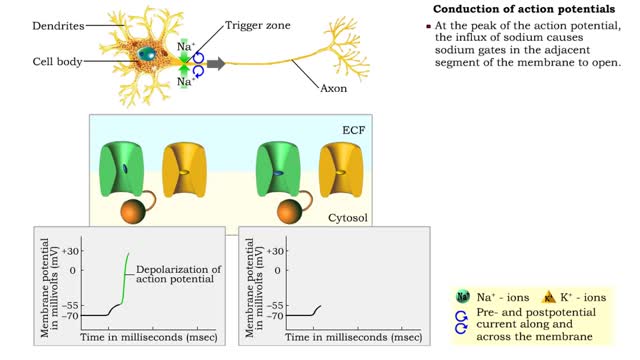
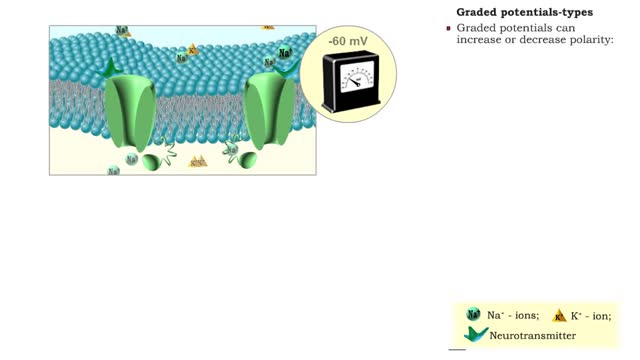
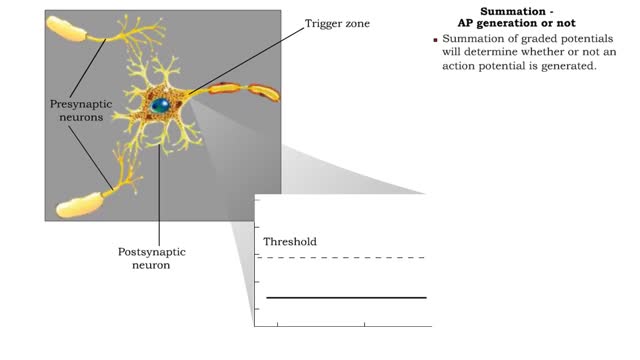
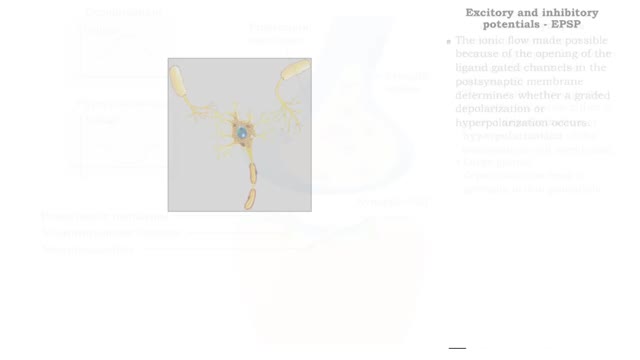
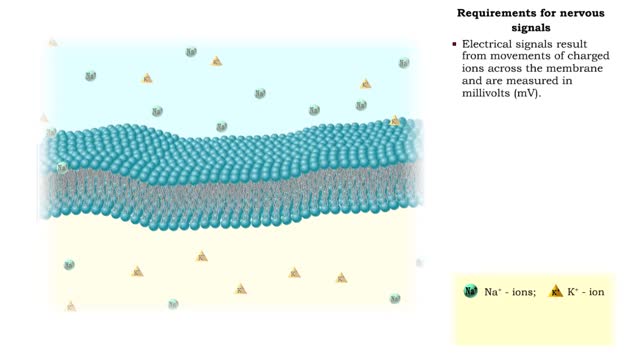
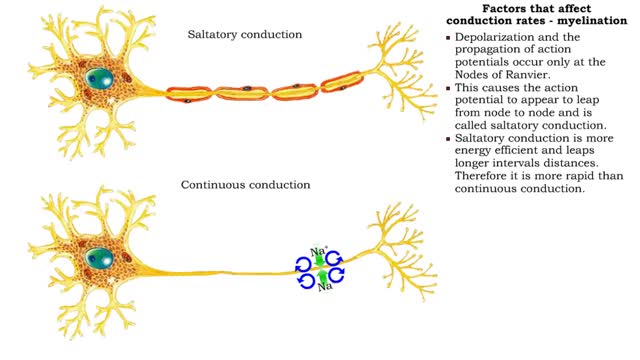
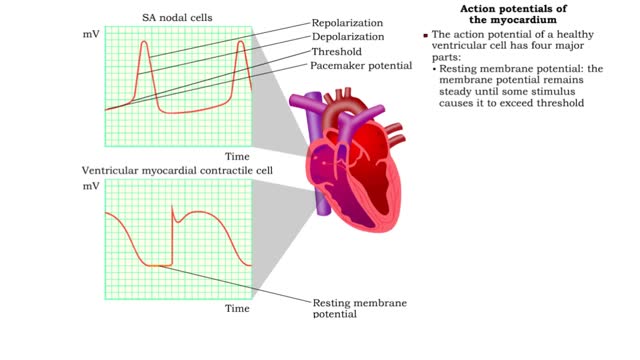
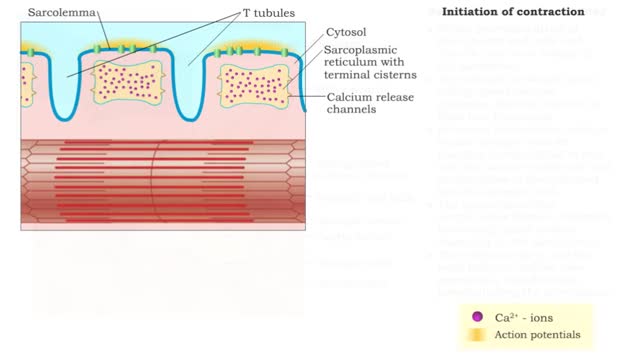
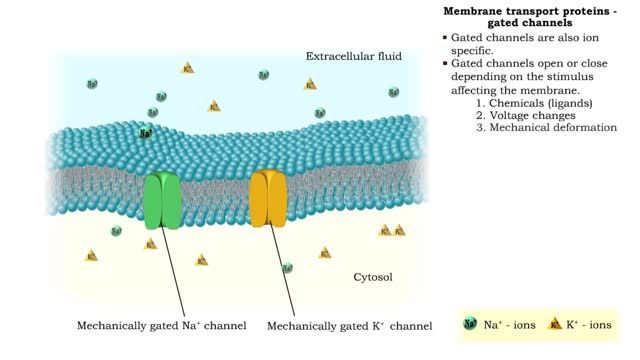
Comments
0 Comments total
Sign In to post comments.
No comments have been posted for this video yet.